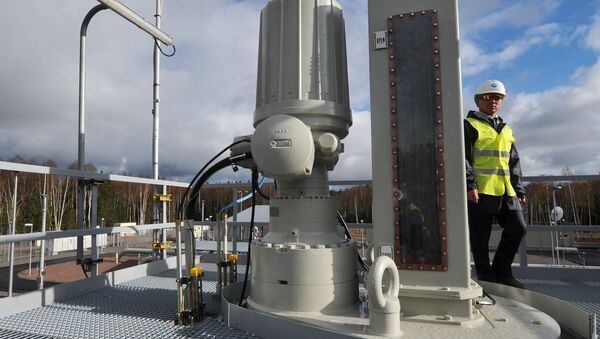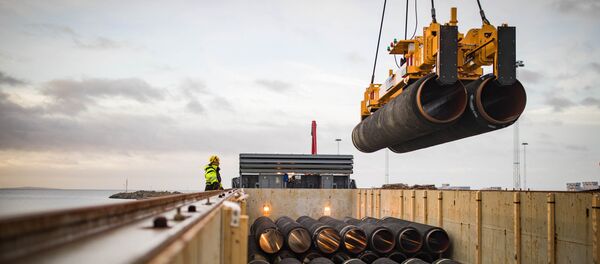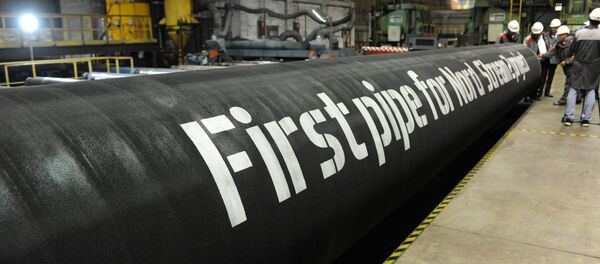Sputnik: What's your take on the justification of the European Commission's decision not to support the creation of this pipeline?
Justin Dargin: Fundamentally we have to look at the from several angles; if we will look from the European perspective, they feel that Nord Stream 2 will fail the basic coherence task and there are about three key factors of the coherence task: one is that the fundamental laws that relate to internal energy marketing in Europe would be watered down due to anti-trust concerns; and then the second factor is that the foreign policy and security objectives as it relates towards Ukraine would be undermined by energy policy concerns; and then the third factor is that whether the existing risk at the EU at the moment, politically and economically, would be widened due to the construction of Nord Stream 2. Those are the fundamental concerns of Europe. However, if we really analyze within depth, then we can see that Nord Stream 2 would not divide the EU energy market fundamentally because it's already divided; so if you look at, for instance, at Central and Eastern Europe and South-Eastern Europe, it's in need of extreme and quite rapid market reform and also improvement, so I think some of the concerns may be a little bit overstated from the EU side.
Sputnik: It's interesting you that you say that; from this side it's hard not to be motivated by the geopolitical situation that's raging around the world at the moment. I think Washington repeatedly indicated that the Nord Stream project should be abandoned; what reasons were presented by the US side, are you aware of any?
Sputnik: What role has the US position had to play with regard to the EC's statement, I'm sure there's been a lot of pressure supplied?
Justin Dargin: Yes, absolutely. One thing that we have to recognize is that so far the US has indicated that the sanctions regime against Russia at the moment will not necessarily apply to Nord Stream 2, it is my personal belief that I don't believe the US will apply sanctions, or any aspect of the sanctions regime against Nord Stream 2, although there will continue to be a lot of political pressure that is going to be placed on Germany and also on Denmark and Sweden. Germany already allowed to have the permitting of it, but if we look, for instance, at Sweden and Denmark they have not done so as of yet, so we're still going to see an enormous amount of pressure applied against these two countries not to allow the pipeline to bypass its territorial waters.
Sputnik: How important is the European Commission's decision with regards to Nord Stream? Does it play any heavy role at all or is this purely a political statement from your point of you?
Justin Dargin: We can see that in terms of decision-making for their permitting of the Nord Stream 2, that is a national decision; although, some of the countries, of course, such as Denmark prefer to see that decision taken up at a higher level so that they don't necessarily have to be involved, in that because they're small country and these issues are a bit larger than they are; but nonetheless, we can still see that this is at the moment a national decision.
Sputnik: What's your take on this, in terms of an individual executive, with your experience and someone with a balanced view; there's got to be some rationale in terms of benefits that this Nord Stream 2 project is going to give in terms of the European energy moving forward. What would you like to be done with this?
The views and opinions expressed in this article are those of the speaker and do not necessarily reflect those of Sputnik.



